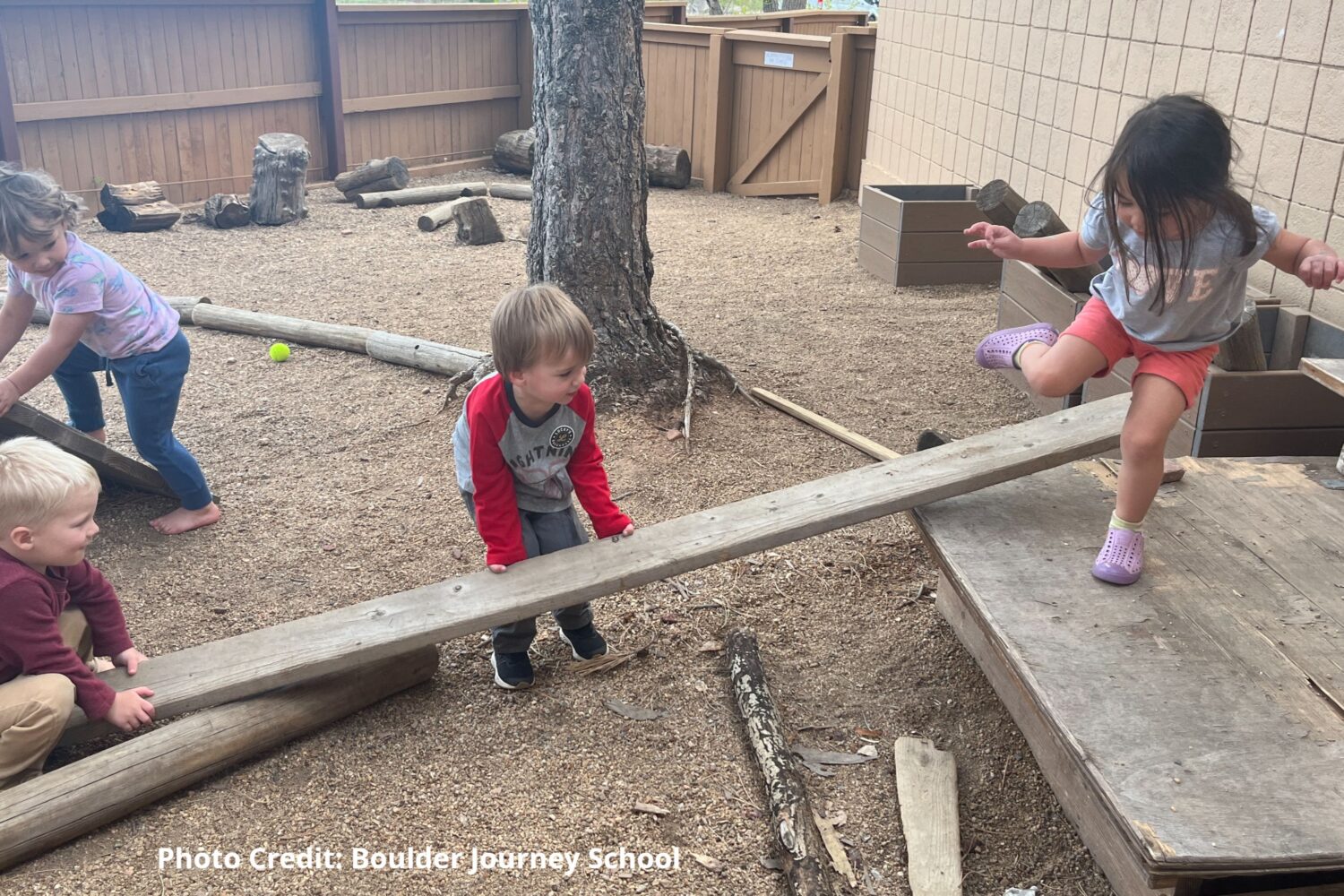From Phillips County on the eastern plains to Montezuma County in the southwest, rural grantees from the Community Innovation and Resilience for Care and Learning Equity (CIRCLE) Grant Program implemented innovative projects to address child care challenges. Grantees supported and expanded the early childhood workforce, formed coalitions, opened the doors to new child care centers, and increased high-quality education for children in rural areas.
Funded with federal stimulus dollars, the CIRCLE Grant Program provided nearly $23 million in grants to child care providers and other community, education, and governmental partners to pursue innovative solutions to challenges worsened by the pandemic. Early Milestones partnered with the Colorado Department of Early Childhood (CDEC) to administer the grants.
Rural Communities Face Unique Barriers to Addressing Child Care Challenges
Of the nearly 230 organizations awarded grants across Colorado, 64 are rural and frontier grantees. Forty-seven of the state’s 64 counties are rural, and one in ten Colorado children under five live in these areas[1]. While many child care challenges are similar across the state, rural areas face a unique set of barriers to addressing critical child care shortages in their communities. Historically overlooked by other funding sources, rural grantees were awarded over $6 million to address these needs.

The inability to make a living wage is also an entrenched challenge for ECE professionals, but is more stark in rural counties. “In some Colorado resort towns, child care workers, who earn an average of $30,000 a year and are disproportionately women of color, commute long distances from places they can afford to live,” writes Shannon Najmabadi for The Colorado Sun in an article about child care workforce challenges. Most early childhood educators make between $14 and $23 an hour, which is less than half of what would be considered a living wage in rural counties where the cost of living is high.[3]
Community Members Step in with Solutions to Child Care Challenges
The Good Food Collective used its CIRCLE funds to support their Grupo de Cuidado Infantil, a Latinx and immigrant-led community group. In turn, Grupo de Cuidado Infantil partnered with Transform Consulting to conduct a Community Childcare Needs Assessment specific to the Latinx community. The assessment has gained traction in the county, and Grupo de Cuidado Infantil is acting as a springboard for implementing it. In August, the group convened a multi-sector ECE Task Force to create a roadmap for Latinx child care in La Plata County.
While child care challenges in rural communities are numerous, the strength and resilience of these communities struck the Early Milestones CIRCLE team as we visited rural child care centers. Faced with closures and shortages, parents and community members came together to keep centers open. At Mancos Valley Dragonfly School, several grandparents donated land and yurts to convert into classrooms.

When there was a possibility HeartSong Montessori could close, parents in Grand Junction moved mountains to keep their school open. They incorporated the school into a nonprofit, joined the board, applied for grants, and found a new space for the school to operate. “We are proud of being able to save this school for our children,” shared parent Sarah Tenhoff. “We want to build out access to this community gem for many more children across the valley.”
In Black Hawk, operating Eagles’ Nest Early Learning Center is truly a family operation. Executive Director Salina Gomez works with both her parents at the center: her mother is an infant teacher, and her father works in the kitchen. Grants Manager Kayla Lowe explains that in their rural community, “We raise each other’s children.” With their CIRCLE grant, Eagles’ Nest boosted the credentials of several teachers and enrolled more children from their waitlist. They plan to open more spots in their center this year.

In the tight-knit and isolated community of Silverton, there are no waitlists for child care. Sara Mordecai, Executive Director of Silverton Family Learning Center (SFLC), made this possible by fully anticipating child care needs. The center received an Emerging & Expanding Grant from CDEC to increase SFLC’s capacity from 30 students to 45. Additionally, with CIRCLE grant funding during the 2022–2023 school year, SFLC developed a scholarship opportunity for families with children under the age of three. The scholarship was administered in return for volunteer hours, a mutually beneficial and successful initiative.
These are just a few examples of rural CIRCLE grantees across the state who are fostering community-driven and equitable solutions to child care challenges. CIRCLE grantees who serve rural communities have shown that with investment and support, every child and family in Colorado should be able to access child care no matter where they live.
Rural areas struggle with unique child care challenges, including recruitment of and adequate pay for early childhood education professionals. Through the CIRCLE Grant Program, grantees expanded the early childhood workforce in their communities and increased high-quality education for young children. Grantees had many successes. They formed coalitions, opened new child care centers, offered scholarships to families, and supported additional credentialing for child care providers.keyTakeaways
FOOTNOTES
[1] Colorado Shines Brighter Opportunities for Colorado’s Early Childhood System (2020). Colorado Department of Early Childhood and the Colorado Health Institute. https://dcfs.my.salesforce.com/sfc/p/#410000012srR/a/4N000000AGxx/QPNqI9n15kNbYRhObm7zKcWoPajUElvqWkrdaeSJdHY.
[2] Colorado Early Care and Education Workforce Dashboard (2021). Colorado Department of Early Childhood. https://public.tableau.com/views/OEC_PDIS_BIU_Analytics/Home?:showVizHome=no.
[3] https://coloradosun.com/2021/08/16/routt-colorado-childcare-crisis/




